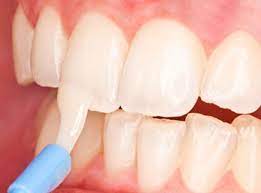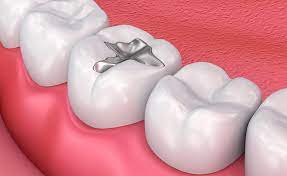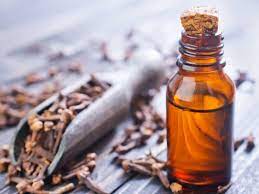
Tooth decay, also known as dental caries, is a common dental problem that occurs when bacteria in the mouth produce acid that eats away at the enamel of the teeth. If left untreated, tooth decay can lead to cavities, tooth pain, and even tooth loss.
Common causes of tooth decay:
- Poor Oral Hygiene: Poor oral hygiene is one of the primary causes of tooth decay. If you do not brush and floss regularly, food particles and bacteria can accumulate in your mouth and form plaque, which can eventually lead to tooth decay.
- Diet: A diet high in sugar and carbohydrates can increase the risk of tooth decay. When sugar and carbohydrates are left on the teeth, they provide a food source for bacteria, which can produce acid that eats away at the enamel of the teeth.
- Dry Mouth: Dry mouth can increase the risk of tooth decay. Saliva helps to wash away food particles and neutralize acid in the mouth. If you have a condition that causes dry mouth or take medications that can cause dry mouth, you may be at increased risk of tooth decay.
- Acidic Foods and Beverages: Acidic foods and beverages such as citrus fruits, soft drinks, and sports drinks can erode the enamel of the teeth and increase the risk of tooth decay.
- Genetics: Genetics can play a role in the risk of tooth decay. Some people may be more prone to tooth decay due to genetic factors that affect the structure and composition of their teeth.
- Age: As you age, the enamel of your teeth can become thinner, which can increase the risk of tooth decay.
Tooth decay is a common dental problem that can lead to cavities, tooth pain, and tooth loss if left untreated. Poor oral hygiene, diet, dry mouth, acidic foods and beverages, genetics, and age are all potential causes of tooth decay. To prevent tooth decay, it is important to brush and floss regularly, eat a healthy diet low in sugar and carbohydrates, drink plenty of water, and visit a dentist regularly for cleanings and check-ups.
Some modern methods for the treatment of tooth decay. In this article, we will explore some of these methods.

- Fluoride Treatment: Fluoride is a mineral that can help to strengthen the enamel of the teeth and prevent further decay. Fluoride treatments involve applying a fluoride gel or varnish to the teeth, which is then left on for a few minutes before being rinsed off.

- Dental Fillings: Dental fillings are a common treatment for cavities caused by tooth decay. During this procedure, the dentist will remove the decayed portion of the tooth and fill the area with a dental filling material, such as composite resin or amalgam.

- Root Canal Therapy: If tooth decay has reached the pulp of the tooth, root canal therapy may be necessary to remove the infected tissue and restore the tooth. During this procedure, the dentist will remove the pulp, clean the root canal, and fill it with a dental filling material.

- Dental Crowns: Dental crowns are used to restore teeth that have been severely damaged by tooth decay. A dental crown is a tooth-shaped cap that is placed over the damaged tooth to restore its shape, size, and strength.

- Dental Implants: If a tooth has been lost due to tooth decay, a dental implant may be necessary to replace it. A dental implant is a small metal post that is surgically implanted in the jawbone and serves as a replacement tooth root. A dental crown is then placed over the implant to restore the appearance and function of the missing tooth.
While professional dental treatment is necessary to treat advanced cases of tooth decay, there are several home remedies that can be used to alleviate symptoms and slow the progression of the condition. Some of these home remedies.

- Oil Pulling: Oil pulling involves swishing a tablespoon of oil (such as coconut oil or sesame oil) around in your mouth for 15-20 minutes, then spitting it out. This can help to reduce the amount of harmful bacteria in the mouth and promote healthy teeth and gums.

- Saltwater Rinse: A saltwater rinse can help to alleviate tooth pain and inflammation caused by tooth decay. Mix a teaspoon of salt with a cup of warm water, then swish it around in your mouth for 30 seconds before spitting it out.

- Garlic: Garlic has natural antibacterial properties that can help to kill harmful bacteria in the mouth. Crush a garlic clove and mix it with some salt, then apply the mixture to the affected tooth and leave it on for a few minutes before rinsing it off.

- Clove Oil: Clove oil contains a compound called eugenol, which has natural analgesic and antibacterial properties. Apply a small amount of clove oil to a cotton ball and place it on the affected tooth for 15-20 minutes.

- Green Tea: Green tea contains antioxidants that can help to reduce inflammation and promote healthy teeth and gums. Drink a cup of green tea every day to help prevent tooth decay.
In conclusion, while professional dental treatment is necessary to treat advanced cases of tooth decay, there are several home remedies that can be used to alleviate symptoms and slow the progression of the condition. Oil pulling, saltwater rinse, garlic, clove oil, and green tea are all natural remedies that can be used to promote healthy teeth and gums. However, it is important to note that these remedies should not be used as a substitute for professional dental care, and if you experience severe tooth pain or other symptoms of tooth decay, you should see a dentist as soon as possible.
